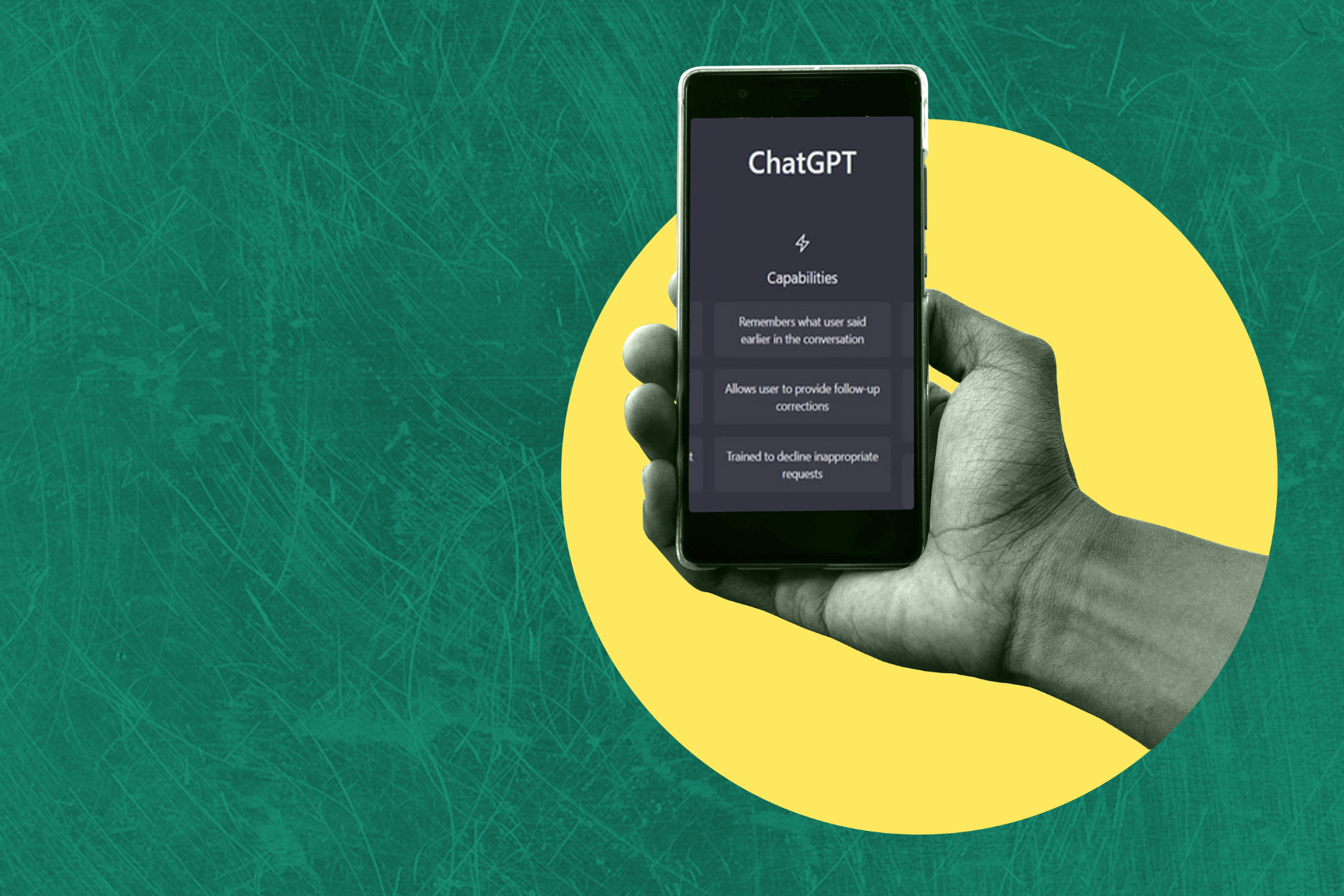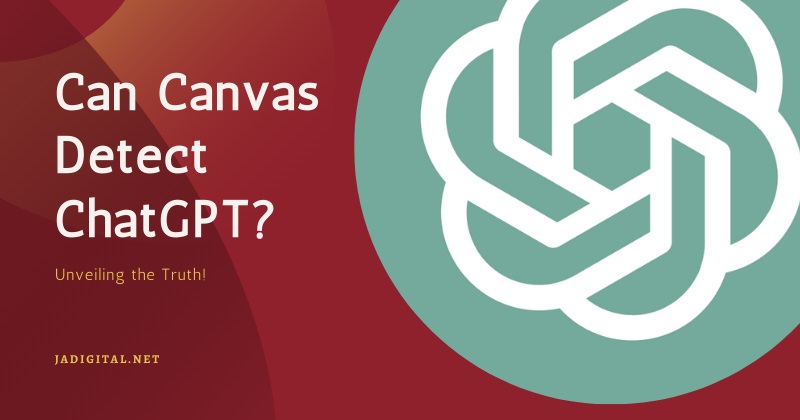Canvas cannot directly detect ChatGPT usage. It relies on plagiarism detection software and monitoring tools.
Canvas is a popular learning management system used by educational institutions. It helps instructors manage courses, assignments, and student interactions. With the rise of AI tools like ChatGPT, students may seek shortcuts for their assignments. Canvas itself does not have built-in capabilities to detect AI-generated content.
Instead, it uses third-party plagiarism detection tools like Turnitin. These tools compare submitted work against a vast database to identify potential plagiarism. Educators also employ other monitoring methods to ensure academic integrity. Understanding these mechanisms can help students stay compliant with academic guidelines and avoid potential penalties.
Quick Navigation
Canvas Detection Capabilities
The question arises: can Canvas detect ChatGPT? Canvas is a popular LMS. It monitors student activities to maintain academic integrity. Let’s explore Canvas’s detection capabilities.
How Canvas Monitors Activity
Canvas uses various tools to track student actions. These tools include:
- Page Views: Tracks which pages students visit.
- Session Duration: Measures how long students stay on a page.
- Assignment Submissions: Logs when students upload assignments.
- Quiz Attempts: Records quiz attempts and completion times.
Canvas also uses proctoring software during exams. This software can detect unusual behavior. Webcams and microphones are often used.
Technical Limitations
Canvas has some limitations in detecting AI tools like ChatGPT. Here are some key points:
- Limited Context Awareness: Canvas cannot understand the content’s origin.
- No Direct AI Detection: Canvas doesn’t have built-in AI detection.
- Reliance on Proctoring: Proctoring tools can monitor but not identify AI use.
Canvas relies heavily on indirect methods. These methods include monitoring time spent and behavior patterns.

ChatGPT Functionality
ChatGPT is a powerful language model that mimics human conversation. Users interact with it to get answers, recommendations, and more. But how exactly does it work? This section explores the functionality of ChatGPT.
How ChatGPT Operates
ChatGPT operates using a neural network architecture called Transformer. It uses a vast dataset to generate human-like text. The model predicts the next word based on the previous words.
The training data includes books, websites, and other texts. This data helps ChatGPT understand the context and produce relevant responses. The model is fine-tuned to improve accuracy and coherence.
ChatGPT doesn’t understand text like humans do. Instead, it calculates probabilities to generate plausible answers. This process happens in real time, making the interaction seamless.
User Interaction With ChatGPT
Users interact with ChatGPT through text-based inputs. They type questions or prompts, and ChatGPT responds. The responses can be informative, creative, or conversational.
There are various platforms where users can access ChatGPT. These include websites, apps, and integrated services. The interaction is simple and user-friendly.
Users can ask a wide range of questions. ChatGPT can handle topics from science to entertainment. It provides answers based on its training data. The model continually learns and improves from user interactions.
Privacy and security are essential in user interactions. ChatGPT does not store personal data from conversations. This ensures a safe and secure user experience.
Privacy Concerns
Many students wonder if Canvas can detect ChatGPT usage. This raises privacy concerns about data collection and surveillance. Let’s explore these concerns.
Data Collection By Canvas
Canvas collects a lot of data. It tracks student activity, submissions, and logins. This data helps improve the platform but raises privacy issues.
| Data Collected | Purpose |
|---|---|
| Login Times | Track Attendance |
| Page Views | Analyze Engagement |
| Submission Dates | Check Deadlines |
Implications For Students
Data collection by Canvas has implications for students. Their activities are monitored, impacting their privacy.
- Increased Surveillance: Students may feel constantly watched.
- Data Security: Collected data must be secure to protect students.
- Transparency: Students should know what data is collected.
Myths And Realities
Many students and educators wonder if Canvas can detect ChatGPT. Understanding the myths and realities helps everyone stay informed. Let’s explore the common misconceptions and verified facts.
Common Misconceptions
There are several misconceptions about Canvas and ChatGPT detection:
- Canvas can detect all AI-generated text: This is false. Canvas cannot detect all AI text.
- Using ChatGPT will always trigger plagiarism detection: Not necessarily. It depends on how the text is used.
- Canvas has built-in AI detectors: Canvas itself does not have built-in AI detectors.
Verified Facts
Here are the verified facts about Canvas and ChatGPT:
| Myth | Reality |
|---|---|
| Canvas detects all AI text | Canvas cannot detect all AI text. |
| AI text always triggers plagiarism | Depends on text usage and originality. |
| Canvas has built-in AI detectors | No built-in AI detectors in Canvas. |
Keep these facts in mind while using ChatGPT on Canvas. Knowing the truth helps avoid unnecessary worries.
Future Of Online Learning
The Future of Online Learning is ever-evolving. With the rise of AI, learning platforms like Canvas are adapting. They aim to provide fair and efficient education for all students.
Advancements In AI Detection
AI detection tools are becoming more advanced. They help identify AI-generated content. Canvas is integrating these tools. This ensures academic integrity.
Advanced algorithms analyze text patterns. They can distinguish between human and AI writing. This is crucial for maintaining fairness in online assessments.
| AI Detection Tool | Features |
|---|---|
| Turnitin | Plagiarism check, AI detection |
| Grammarly | Grammar check, AI detection |
Balancing Innovation And Privacy
Balancing innovation and privacy is crucial. Students’ data must be protected. AI tools should not invade privacy. Canvas ensures this balance.
Educational institutions follow strict guidelines. They use AI responsibly. Protecting student data is a top priority.
- Data encryption
- Secure access controls
- Regular audits
These measures ensure students’ privacy. Innovations in AI detection are beneficial. But they must respect privacy.


Frequently Asked Questions
Can Canvas Detect ChatGPT Usage?
Canvas itself cannot directly detect ChatGPT usage.
How Does Canvas Monitor Student Activity?
Canvas tracks logins, page views, and activity timestamps.
Can Instructors Spot AI-generated Content?
Yes, instructors may recognize AI-generated text by its style and coherence.
Are There Tools To Detect AI Writing?
Yes, tools like Turnitin can help identify AI-generated text.
Does Canvas Have Anti-cheating Mechanisms?
Yes, Canvas has features like lockdown browsers and plagiarism detection.
Can I Use ChatGPT For Assignments?
Using ChatGPT may violate academic integrity policies. Always check with your institution.
Conclusion
Canvas cannot directly detect ChatGPT. It relies on plagiarism detection tools. Use AI responsibly and ethically. Understanding Canvas’s limitations ensures proper usage. Stay informed about academic integrity guidelines to avoid issues. Employ ChatGPT as a learning aid, not a shortcut.
This approach fosters genuine knowledge and skill development.
Last Updated on November 26, 2024 by JADigital Editorial
